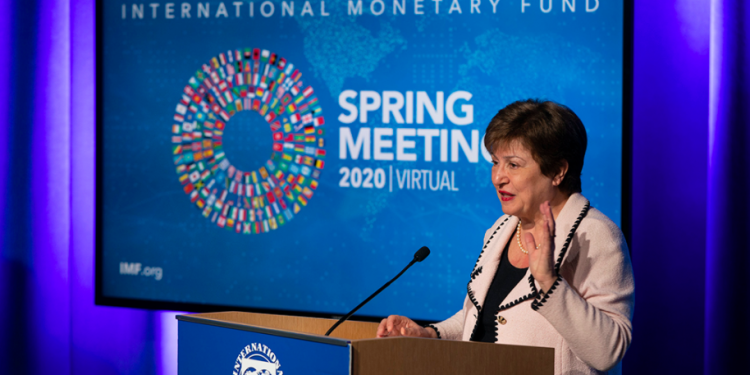The International Monetary Fund(IMF) says that as a result of the COVID 19 pandemic, the global economy is projected to enter into the worst recession since the Great Depression which lasted from 1929 to 1939.
In its latest World Economic Outlook bulletin and baseline survey titled THE GREAT LOCKDOWN, the fund says the pandemic is likely to phase out in the second half of 2020 with the Global economy falling by as much as 3 per cent and growing by 5.8 per cent in 2021 as economic activity normalizes.
The IMF observes that the COVID-19 pandemic is inflicting high and rising human costs worldwide. Protecting lives and allowing health care systems to cope have required isolation, lockdowns, and widespread closures to slow the spread of the virus.
The health crisis is, therefore, having a severe impact on economic activity. These include supply disruptions, and dramatic tightening in global financial market conditions, shifts in spending patterns and behavioural changes such as people avoiding shopping malls and public transportation.
Many countries face a multi-layered crisis comprising a health shock, domestic economic disruptions, plummeting external demand, capital flow reversals, and a collapse in commodity prices.
It says necessary measures to reduce contagion and protect lives will take a short-term toll on economic activity.
The Fund is advising countries to increase health care expenditures to strengthen the capacity and resources of the health care sector while adopting measures that reduce contagion. It says policymakers will need to implement substantial targeted fiscal, monetary, and financial market measures to support affected households and businesses.
The fiscal response has been swift and sizable in many advanced economies such as Australia, France, Germany, Italy, Japan, Spain, the United Kingdom and the United States).
China, Indonesia, and South Africa have also begun providing or announcing significant fiscal support to heavily impacted sectors and workers.
In its global outlook, the IMF observes that fiscal measures will need to be scaled up if the stoppages to economic activity are persistent, or the pickup in activity as restrictions are lifted is too weak.
Economies facing financing constraints to combat the pandemic and its effects may require external support.
IMF warns that until such medical interventions become available, no country is safe from the pandemic as long as transmission occurs elsewhere.
RELATED: World Bank and IMF Call On Suspension of Debt Payments from Poorest Countries




